Challenges and Prospective of Plant Abiotic Stress (In 2 Volumes)
Abiotic stress is the foremost factor adversely affecting crop growth and productivity globally. It cause changes in soil-plant-atmosphere continuum and is responsible for reduction in yield potential in many crops. Abiotic stresses provoke complex cellular responses that have been elucidated by progresses made in exploring and understanding plant abiotic responses at the whole-plant, physiological, biochemical, cellular and molecular levels. Plants respond to these environmental challenges through a number of homeostatic mechanisms that maintain the water balance and the integrity of tissues. Salinity levied short-term osmotic and long-term ionic stresses induces cellular adjustment associated with a perceptive reform of cell structure and metabolism. Owing to the significance of diverse receptor proteins in signal transduction, modulation of abiotic stress responsive receptors would be a one of new method for crop improvement. Though, there are many books available in the market on abiotic stress in plants, we tried our best to boost up the knowledge on abiotic stress in plants by embracing all vital aspects associated to abiotic stress with the help of getting chapters from experts of abiotic stress research and brought them all in coherent way. The book will bring together a series of chapters that provide scientific insights to conceivable implications of projected upsurge in abiotic stress under climate changes scenario, and a discussion of option for adaptive and alleviative management.
In this book ‘Abiotic Stress: Challenges and Prospects, we narrowed our thematic areas to most relevant and important after series of discussions and invited 18 chapters written by around 60 experts in the field of plant tolerance to abiotic stress, signal perception, transcription factors, proteomic, system biology approaches and bio-engineering of osmolytes. The chapters cover extensively about various aspects of abiotic stresses with in depth discussion on basic approaches of abiotic stresses, principles coupled with that and management strategies in the era of climate change. Efforts are made to cover all the important aspects of the objective of the book. Volume-I of this book contains 9 chapters which accentuates on specific research field related to abiotic stress. Volume-II of this book also contains 9 chapters which focus mainly on specific crops.
The book is also suitably illustrated with colour photographs, wherever necessary, important references to each subject have been cited for detailed reading. The authors acknowledge the compilation of chapters using scattered information that is available in public domain in the form of research papers and in relevant websites.
Contents: Vol. I: 1. Plant tolerance to abiotic stress: a physiological approach/Kiran Bhagat, Ratnakumar P., Yogeshwar Singh, P. Suresh Kumar, Pranita Jondhale, Ashish Jondhale, Teekam Singh, Ajay V. Narwade, Poonam Kashyap, P.B. Taware, Pallavi P. Deokate and Anjali Kumari. 2. Abiotic stress signal perception: receptors and its role/Pruthvi and Rahul S. Lathe. 3. Role of transcription factors in abiotic stress management/Mukesh Kumar Kiran Bhagat, Preeti Goyal, Reena Devi and L.K. Chugh. 4. Proteomic approaches for the analysis of salt tolerance in plant/P.S. Sha Valli Khan, G.V. Nagamallaiah, K. Sergeant and J.F. Hausman. 5. Signaling and uptake Mechanisms of nitrogen and potassium under nutrient stress in plants/Lekshmy S and Vanita Jain. 6. Heat stress response in plants: insight into physiological and molecular mechanisms/Amolkumar U. Solanke, Raghavendrarao S. Kanika and D. Pattanayak. 7. Bio-engineering of osmolytes production in plants: a novel approach to counter abiotic stress/C. Appunu, T. Manjunatha, A. Anna Durai, K. Mohanraj, G. Suresha and R. Arun Kumar. 8. Genetic engineering of stay green traits for development of drought tolerant crops/Ajay Arora. 9. Role of microbes in mitigating effect of abiotic stress in agriculture/Kanika Amit K. Singh, Amolkumar U. Solanke and Tripti Dogra. 10. Abiotic stress in rice: Mechanism of adaptation/Teekam Singh, K.B. Pun, Kiran Bhagat, B. Lal, B.S. Satapathy, M.J. Sadawarti, J.L. Katara, S. Lenka and Priyanka Gautam.
Vol. II: Drought adaptive traits in rice: need for comprehensive approach/Raju, B.R. Mathithumilan, B. Pratibha,M.D. Sheshshayee, M.S. Mohanraju, B. Haritha Bollinedi, Shashank, P.R. and Upendra Kumar. 12. Abiotic stresses and vegetable production in tropical islands/Shrawan Singh. 13. Genetic engineering of groundnut (Arachis Hypogaea L.) for abiotic stress tolerance: challenges and prospects/Jayanna Naik Banavath, Varakumar Pandit, Sravani Konduru, Krishna Kumar Guduru, Sudhakar Podha, Chandra Sekhar Akila and Chandra Obul Reddy Puli. 14. Abiotic stress response in sugarcane/Ajay V. Narwade, Kiran Bhagat, D.V. Patil, Anjali Kumari, Ban Yogesh G. Thakare Harish S. and Chandrakant Singh. 15. Cocoa (Theobroma cacao I.) towards climate resilient horticulture/S. Elain Apshara and D. Balasimha. 16. Abiotic stresses management and mitigation in fruit crops/Poonam Kashyap and Sudhir Kumar. 17. Physiological and breeding approaches for abiotic stress in cotton/Ajay V. Narwade, Kiran Bhagat, D.V. Patil, Anjali Kumari, Thakare Harish S, Chandrakant Singh and Ban Yogesh G. 18. Soil and water conservation measure in resource scarce dryland areas: a way to mitigate abiotic stresses in climate change scenario/P. Suresh Kumar, V.K. Choudhary, Yogeshwar Singh, D.D. Nangare, P. Ratnakumar, A. Sangeeta, Kiran Bhagat and P.B. Taware.
Get it now and save 10%
BECOME A MEMBER

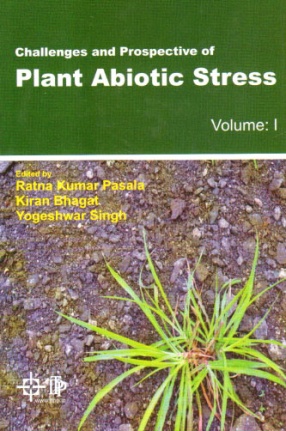
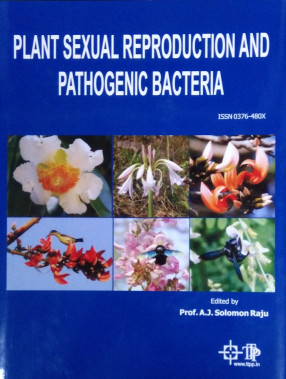
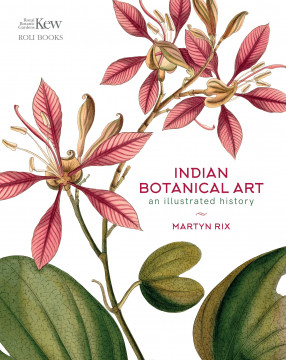
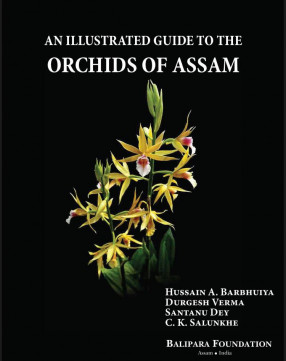
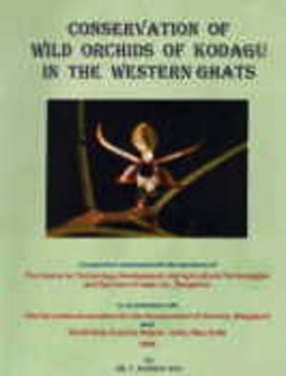

Bibliographic information
Kiran Bhagat
Yogeshwar Singh